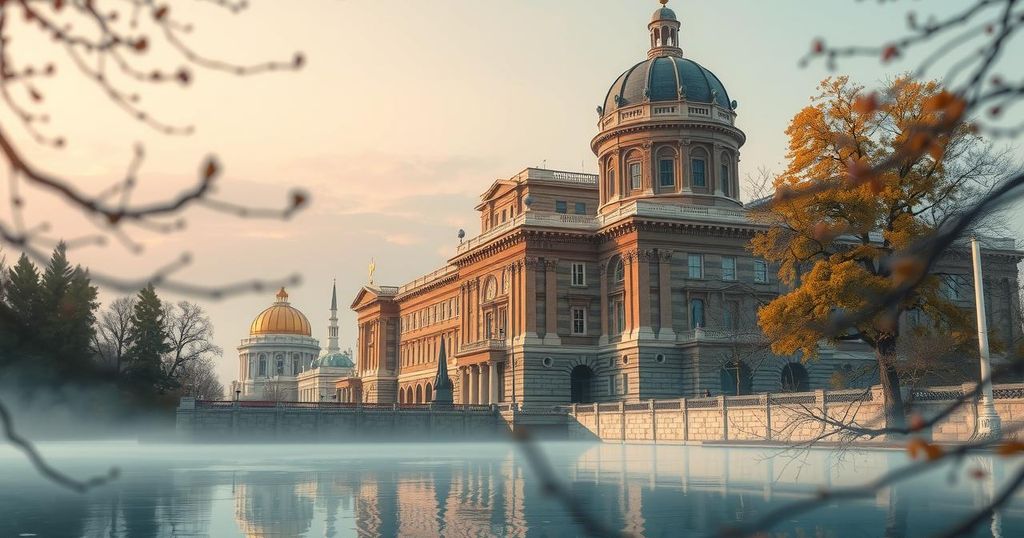Cameroon’s upcoming elections may see 91-year-old President Paul Biya seek an eighth consecutive term, amidst concerns over his age and health. Despite opposition divisions, some factions support his candidacy, raising questions about political integrity and crisis management in the nation. Economic challenges persist, alongside widespread corruption, as critics doubt the effectiveness of leadership moving forward.
As Cameroon approaches its upcoming elections, the incumbent President Paul Biya, at 91 years old, is poised to seek an eighth consecutive term, establishing himself as Africa’s longest-serving leader. Dr. John Akpo, a political commentator, expressed confidence in Biya’s candidacy despite concerns regarding his health, as motions of support have been issued by party members advocating for his continued rule.
Having held power for over 42 years, should he be reelected, Biya would be 99 by the next election in 2032, assuming he can fulfill the duties of his office. Biya’s leadership has garnered backing from some opposition factions, though Akpo perceives this support as disingenuous, characterizing such parties as extensions of the ruling regime aimed at undermining true opposition.
The civil unrest stemming from the Anglophone separatist movement has had adverse effects on Cameroon’s economy, a situation that Akpo argues Biya, had he been younger, might have managed differently. Critics cite Biya’s advanced age as a hindrance to addressing the country’s crises intimately, raising questions about his capacity for situational awareness amidst ongoing violence.
The CPDM primarily relies on assistance from coalition partners to maintain legislative control, yet their influence diminishes, evidenced by the poor performance in recent elections. Maurice Kamto, a prominent opposition leader, is viewed as a potential successor, alongside Biya’s son, Franck, who is emerging in the political landscape.
Recent statements from Catholic bishops in Cameroon prompted discussions about governance, with some reportedly calling for Biya to transfer power. Despite attempts to clarify their message, the bishops emphasize the need for better living conditions rather than direct appeals for resignation, highlighting the church’s role in influencing public opinion in the predominantly Catholic nation.
Although Cameroon’s economic outlook has improved slightly, growth remains sluggish amid challenges such as inflation and internal conflict, with a significant portion of the population still living in extreme poverty. Corruption continues to be a systemic issue, as Akpo points out, leading to abandonment of vital state projects in favor of personal enrichment.
There is a prevailing concern over the lack of viable alternatives to Biya given the opposition’s internal divisions, meaning that many citizens may opt for the status quo. Opposition member Michele Ndoki remarked that the crux of the issue lies in whether Biya can effectively govern at his advanced age, which remains a topic of debate amongst the electorate.
This article discusses the political landscape in Cameroon as President Paul Biya prepares for another term in office. It outlines Biya’s long tenure as president, the opposition’s current state, and the impacts of ongoing civil unrest and corruption on the nation. The context of the upcoming elections is crucial as it reveals dissatisfaction within the country and raises questions about Biya’s capabilities to lead effectively at the age of 91.
As Cameroon gears up for elections, President Paul Biya’s potential candidacy raises concerns regarding his ability to govern effectively at such an advanced age. The fractured political opposition struggles to provide a clear alternative, while ongoing civil unrest and corruption continue to challenge the nation’s stability. The situation calls for urgent dialogue and reform, but the future of Cameroon under Biya remains uncertain without significant changes or new leadership.
Original Source: www.dw.com







